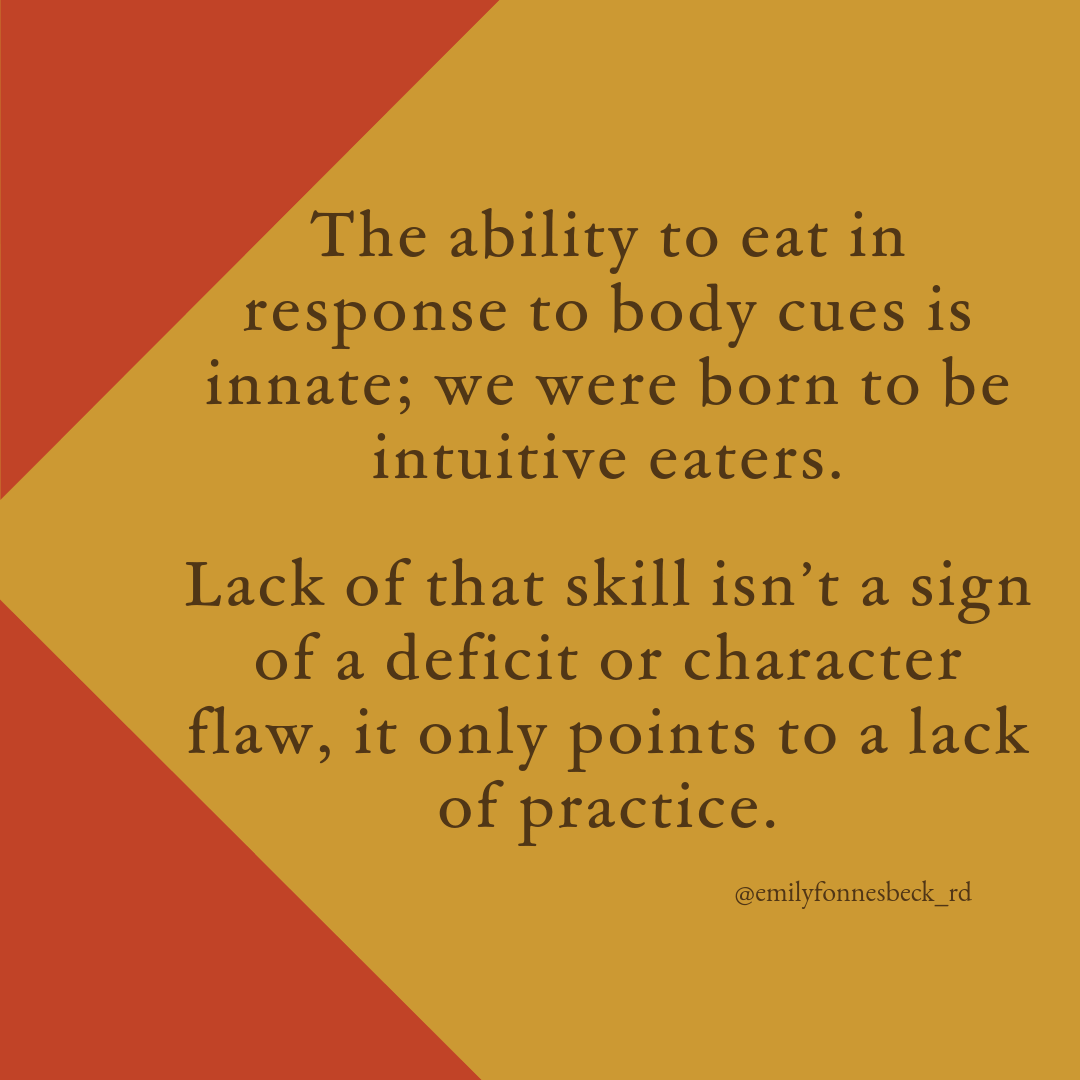For years, health professionals have tried to boil nutrition down to calories in and calories out, particularly when discussing concerns about weight. It seems appealing to make it that black and white, but is it an accurate theory?
In reality, it’s a gross oversimplification of nutrition, physiology, metabolism and weight. There are far more variables in that equation than it’s accounting for.
Can you actually accurately track calories?
The calories in vs. calories out theory operates on the assumption that there’s a precise way to count calories and that if you’re meticulous enough, you can manipulate your weight as you please. We will get to manipulating weight in a minute, but as it turns out, calorie counts are only estimates. Essentially, you may be hanging your hat on a very inaccurate system and trying to accurately track calories will likely only drive you up the wall.
Our bodies have much more ebb and flow in nutrient needs from day to day
You might have heard that if you eat 100 fewer calories every day, you’ll lose 10 pounds by the end of the year. Or perhaps the opposite — eating 100 extra calories a day will cause you to gain 10 pounds by the end of the year.
However, our bodies have a lot more wiggle room than that. Eating a bit more one day or a bit less another day actually only causes your metabolism to become more or less efficient. Contrary to popular belief, your body is constantly working hard to maintain your most optimal weight.
Your body’s nutrient needs will ebb and flow from day to day. This may depend on your level of activity, need for healing or repair, illness, growth, medications, etc.
The calories in vs. calories out theory ignores the genetic component of weight
Even if we all ate the same and moved the same, we would still look vastly different. You inherited a genetic set point from your parents or a weight range at which your body functions most optimally. In particular, your body has a certain percentage of body fat that it wants to hold onto, which will be different for everyone. When your fat stores reach a point where your body feels its survival is threatened, it will adapt to maintain its genetically ideal weight range.
In reality, the cultural narrative that we can look however we want if we just try hard enough (or keep a close enough watch on our calories) is dangerous and irresponsible. It can lead people to fight against their natural, healthy weight for a weight that is not ideal for them.
There are hormonal adaptations that happen in response to weight loss through calorie restriction
The production of hunger and fullness hormones (also known as leptin and ghrelin) adjust when someone loses weight through calorie restriction, encouraging increased food intake. The brain also becomes obsessed with food to avoid starvation, all of which can increase your genetically predetermined set point weight range. This is because your body’s primary goal is survival, not meeting an arbitrary BMI classification.

None of this ignores the effect of environment on body weight. If someone is consistently eating more than their body needs, they may be maintaining a weight that isn’t most functional for their body. But instead of encouraging calorie counting, they should be encouraged to connect and listen to their body’s intuitive signals and respect their fullness cues. The ability to eat in response to body cues is innate; we were born to be intuitive eaters. Lack of that skill isn’t a sign of a deficit or character flaw, it only points to a lack of practice.
I’m also not saying that someone couldn’t change their body weight by changing how they eat or move. But again, even if the calories in/calories out theory was accurate, your body knows how much energy it needs and will communicate that to you. Remember, your job isn’t to count, it’s to listen.
